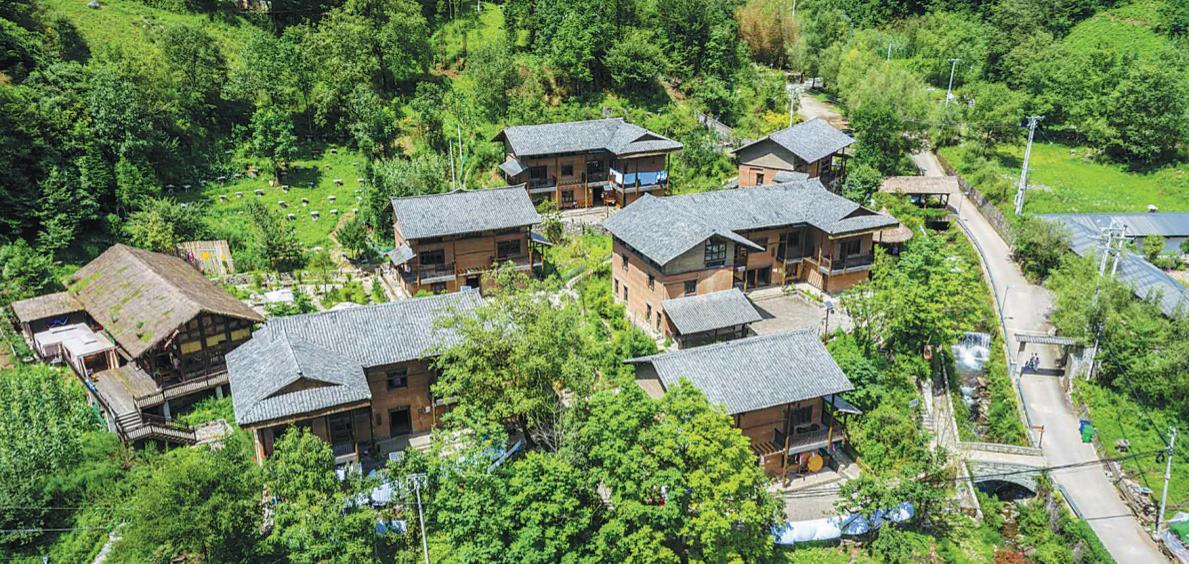
Country roads take me home
To the place I belong…
Many a time, I've found myself unconsciously humming this John Denver masterpiece while driving along China's country roads. Although the expressways across China have made travel easier and faster, whenever possible, I still prefer driving on country roads. Not to save toll fees but to enjoy the feeling of driving slowly and get a better taste of rural life.
Along such roads, one can see the crops change color with the season, bargain with peddlers in roadside markets, knock at a farmhouse door to see if the owner has some farm-raised chicken or duck eggs, fruits and vegetables to sell, or to use a public toilet — most villages now have public toilets at the entrance or exit.
READ MORE: Severe drought, heat wave grip China's agricultural heartland
Intensified country road construction and repair in the past decade have greatly changed villagers' lives, bringing them closer to towns and cities. Using these roads, villagers can transport their produce to markets and sell them for a higher price, and send their children to cities for better education.
The Ministry of Transportation data released in June show China now has 4.6 million kilometers of country roads, an 18.5 percent increase from 10 years ago. And about 4.2 trillion yuan ($578.43 billion) has been invested during the period to build new roads and renovate the old ones, while more than 63,000 bridges have been built or repaired.
Building of country roads is an important part of China's plan to narrow the urban-rural development gap and eradicate rural poverty. Country roads in China refer to roads linking villages and towns with each other and with the county headquarters or nearby cities. The Ministry of Agriculture and Rural Affairs said that by the end of last year, more than 99 percent of China's towns and administrative villages had bus services thanks to the development of road networks.
Some elderly villagers who had never left their village can now take free bus rides to county headquarters thanks to the preferential policies for senior citizens. They carry their harvests for sale in towns and cities for a better price. More roads and better road conditions have prompted many in rural areas to buy cars. According to surveys, about 30 percent of rural families now own cars and/or pickup vans. The roads have also helped boost rural tourism and attract outside investment. As a result, millions of jobs have been created in rural areas.
The construction of country roads will continue in the near future, according to senior Ministry of Transport officials, though some looming challenges demand immediate attention. The first challenge is how to attract sufficient investments for new projects. Usually, such investments were made by provincial-, city- and/or county-level governments, but now that the country's economy is slowing down and attracting new investments is becoming difficult, some local governments find themselves running out of gas so far as building country roads is concerned.
While the local governments should be aware of the strategic significance of building country roads and should do their best to fund the road construction projects, observers suggest that more investment channels such as non-government investment and donations be explored to complete the job.
ALSO READ: Critical support for development
The second challenge is how to maintain the existing roads. Country roads usually need better maintenance because they are not as sturdy as expressways. Without proper maintenance, they could suffer wear and tear in a few years. The local county and township governments which are responsible for maintaining these roads may not be able to prevent such damage if they don't have enough funds to properly maintain them. Driving along the country roads, I sometimes have to slow down to cross bumpy sections — the result of either poor building materials or lack of maintenance.
Many have suggested that special funds be set up to employ skilled hands and buy the necessary equipment and materials to maintain the roads, because a network of smooth country roads will not only help farmers lead a better life but also give urban residents easy access to the colorful country life and natural attractions.
The author is former deputy editor-in-chief of China Daily.


